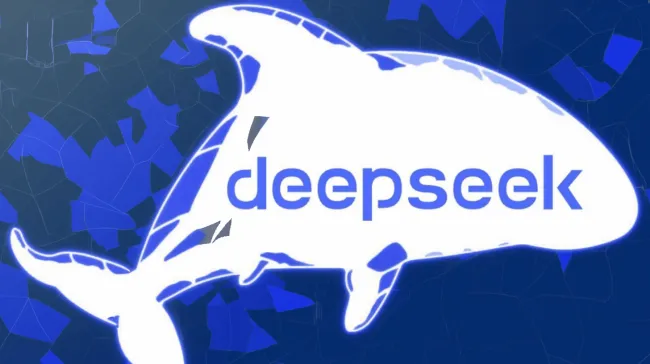Chinese AI App DeepSeek Rattles Global Tech Stocks, Sparks US-China Tech Dominance Concerns
US tech giant Nvidia saw its market value plummet by nearly 17% on Monday, shedding over a sixth of its worth, as investors reeled from the explosive rise of Chinese AI chatbot DeepSeek. The app, developed at a fraction of the cost of Western rivals, has ignited fears over the sustainability of massive AI investments and shaken confidence in America’s grip on the industry.
Market Turmoil
DeepSeek, launched just last week, swiftly became the most downloaded free app in the US, sending shockwaves through global markets. Nvidia, a key AI chip supplier, and rival Broadcom each tumbled roughly 17%, while Microsoft and Google’s parent Alphabet dropped 2.14% and 4%, respectively. In Europe, Dutch chip firm ASML fell over 7%, and Siemens Energy plunged 20%. Analysts attributed the sell-off to concerns that low-cost Chinese AI models could undercut the profitability of US tech giants, which have poured billions into AI infrastructure.
The DeepSeek Phenomenon
Developed by Hangzhou-based startup DeepSeek, the chatbot is powered by the open-source DeepSeek-V3 model, which researchers claim was trained for just $6 million—a stark contrast to the billions spent by rivals like OpenAI. While some AI experts dispute the figure, the company insists its use of existing technology and open-source code slashed costs. DeepSeek-R1, a version released earlier this month, reportedly matches OpenAI’s latest models in tasks like coding and math, prompting Silicon Valley venture capitalist Marc Andreessen to liken it to “AI’s Sputnik moment,” referencing the Soviet satellite that stunned the US in 1957.
US-China Tech Tensions
DeepSeek’s ascent coincides with US restrictions on advanced AI chip exports to China. To bypass shortages, Chinese developers have turned to collaboration and innovative methods, creating models requiring less computing power. Founder Liang Wenfeng, a 40-year-old engineer, reportedly stockpiled Nvidia’s now-banned A100 chips and combined them with lower-end chips to fuel DeepSeek’s development. His firm’s cost-effective approach has raised existential questions for US tech giants, even as Wall Street analysts caution that China’s access to cutting-edge chips remains limited.
Investor Jitters and Cyberattacks
The app’s sudden success has stirred unease among investors. Fiona Cincotta of City Index noted the market was caught off guard by the “low-cost Chinese version,” while Singapore-based adviser Vey-Sern Ling warned it could “derail the investment case for the entire AI supply chain.” Meanwhile, DeepSeek temporarily halted new registrations on Monday due to “large-scale malicious attacks,” though existing users remain unaffected.
Founder’s Ambitions
Liang Wenfeng, who founded DeepSeek in 2023 after launching a hedge fund that bankrolled the venture, recently attended a meeting with Chinese Premier Li Qiang. In a July 2024 interview, Liang expressed surprise at the intense focus on pricing: “We were simply following our own pace, calculating costs, and setting prices accordingly.”
Broader Implications
The upheaval comes as US firms, including OpenAI, pledged $500 billion to build AI infrastructure, a move touted by President Donald Trump as securing “the future of technology” for America. Yet DeepSeek’s rise underscores the unpredictable dynamics of the global AI race, where cost innovation and geopolitical constraints could redraw the competitive landscape.
As markets digest the tremors, one question looms: Can US giants maintain their edge, or will China’s agile, budget-friendly models rewrite the rules? For now, investors are bracing for more turbulence.
